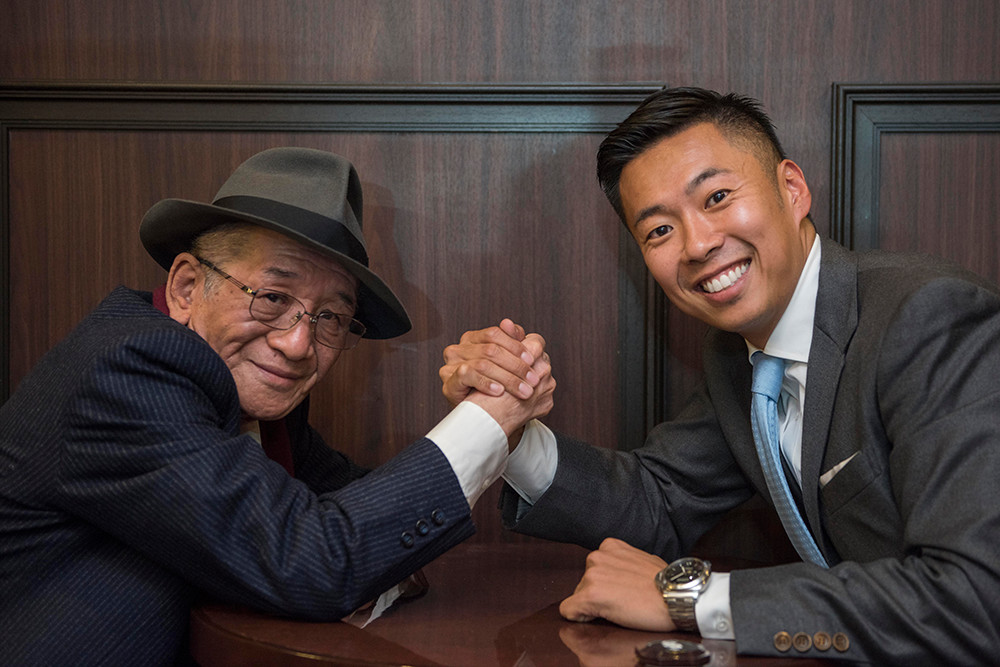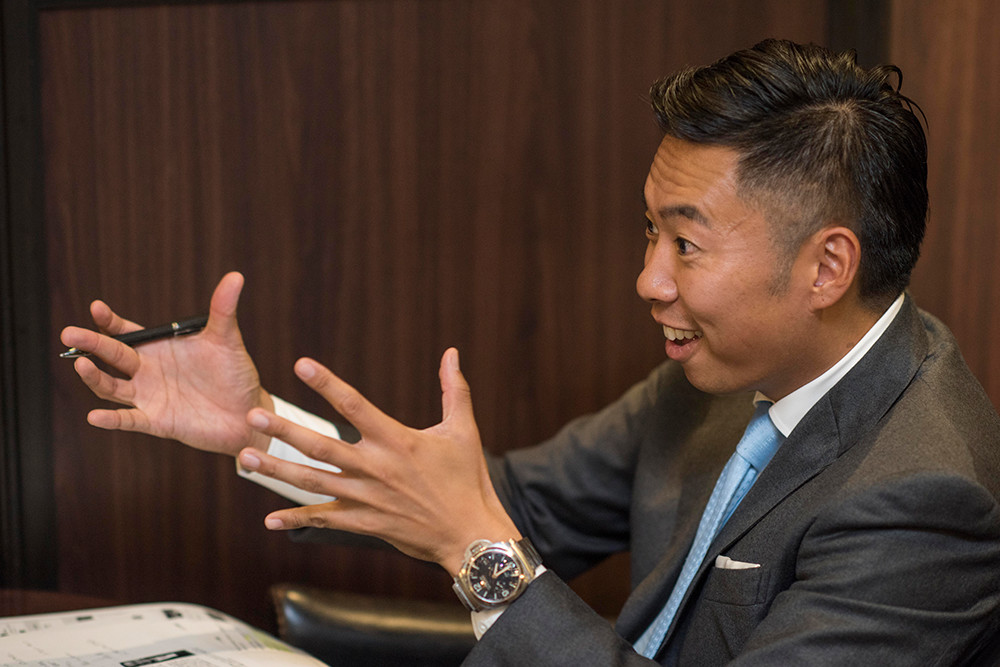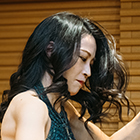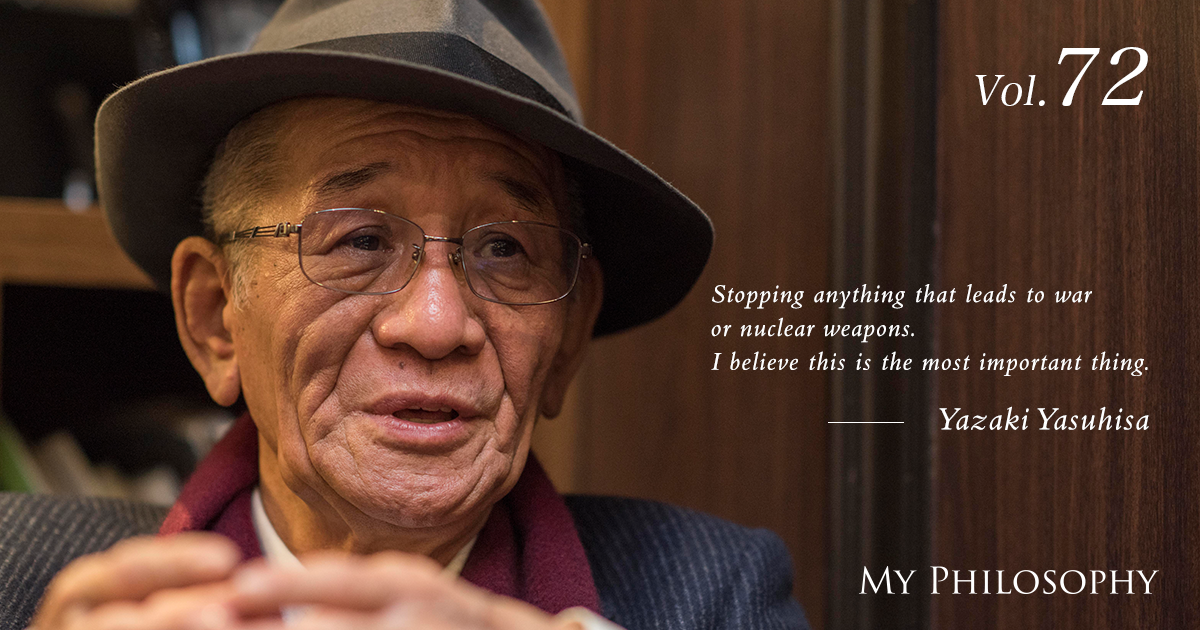
"Hanashi no Tokushū," published from 1965 to 1995, was a magazine that featured many leading cultural figures of its time. Yazaki Yasuhisa, who founded the magazine and served as its editor-in-chief, shared valuable episodes from the history he witnessed and discussed what the next generation should do to carry the torch forward.
Profile
Vol.72 Yazaki Yasuhisa
Freelance Journalist | Editor
Born in Tokyo in 1933, Yazaki Yasuhisa dropped out of Waseda University's School of Political Science and Economics. After working as a journalist for the Nikkei and Naigai Times, he founded the magazine "Hanashi no Tokushū" in 1965, published by Nihonsha, a company managed by his father. In 1967, he became independent by establishing the publishing company "Hanashi no Tokushūsha." He collaborated with numerous creators and artists who were active in various fields at the time, such as designer Makoto Wada, scriptwriter Rokusuke Ei, actor Juzo Itami, and illustrator Akira Uno.
His major works include "Into the Situation: My Obsession with Journalism (Jokyo no Naka e: Waga Journalism e no Shuchaku)" (published by Daiwa Shobo), "’Hanashi no Tokushū’ and Friends (Hanashi no Tokushū to Nakamatachi)" (published by Shinchosha), "The people I have met (Boku wa Konna Otokotachi ni Atte Kita)" (published by San-Ichi San'ichi Shobo), "Never speak, Kikuchi kan of my heart, (Kuchikikan: Waga Kokoro no Kikuchi Kan)", "Life is a comedy (Jinsei wa Kigeki da)" (published by Asuka Shinsha), and many more.
Don’t Cater to the Readers
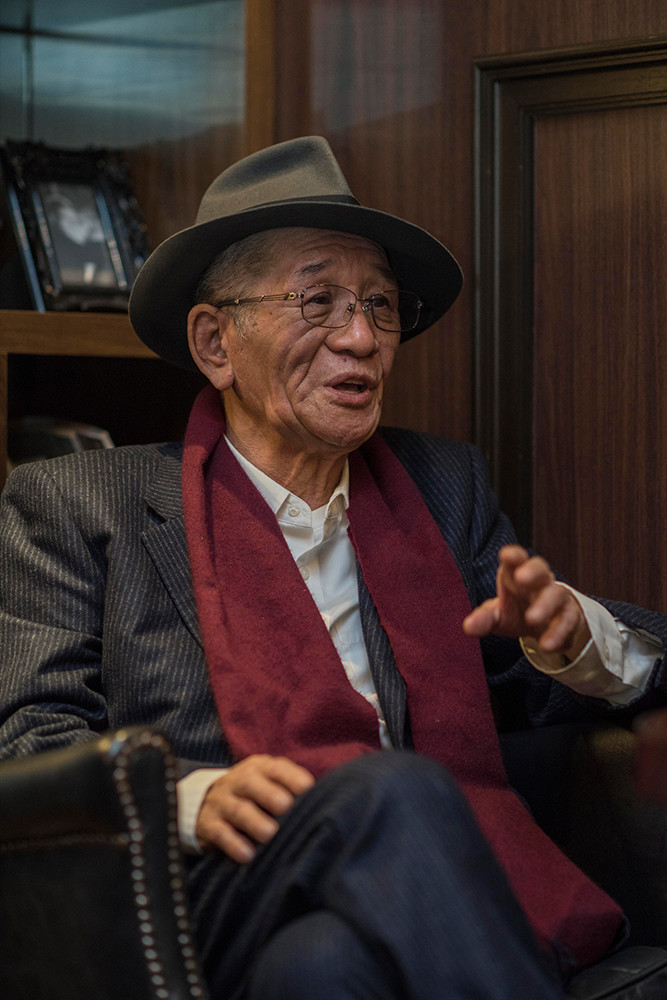
For the first issue of the magazine “Hanashi no Tokushū,” we printed 70,000 copies. Hardly any of them sold, and a little over 50,000 copies were returned. Normally, when unsold copies are returned, they are shredded, but since we had worked so hard to create them, I wanted as many people as possible to read the magazine. So, I decided to distribute the remaining copies for free, without even knowing how much space 50,000 copies would take up. The distributor kept calling me, asking repeatedly, “Are you sure about this?” I thought it was odd until I realized that the quantity was so massive that it left no room for our employees to sit and work.
After five years, the magazine began to sell tremendously well, reaching a peak of 200,000 copies. The first issue, which was initially undervalued, gradually gained significant worth over time. When creating a magazine, you shouldn’t be driven by the thought of making it for the readers; you should create what you find interesting. If you’re interested in something, then others with similar interests will read it. However, when readership starts to grow, you lose that crucial policy. When sales hit 200,000 copies, advertising sponsors increased, and we started making a lot of money. We forgot about the struggles we had endured in the early days.
As a result, we started thinking that we needed to serve the readers to maintain circulation. For instance, even though I personally had no interest in topics like World Heritage sites or the Guinness Book of Records, I began to consider covering them in the magazine, thinking that readers would enjoy it. There are many magazines that do this. What preserved the uniqueness of “Hanashi no Tokushū” was the fact that the topics covered were those that my friends, such as writers Hiroyuki Itsuki, Akiyuki Nosaka, Rokusuke Ei, and I personally found interesting. You shouldn’t cater to the readers. Once we started including things we thought would please the readers, circulation began to decline.
Lives That Could Have Been Saved
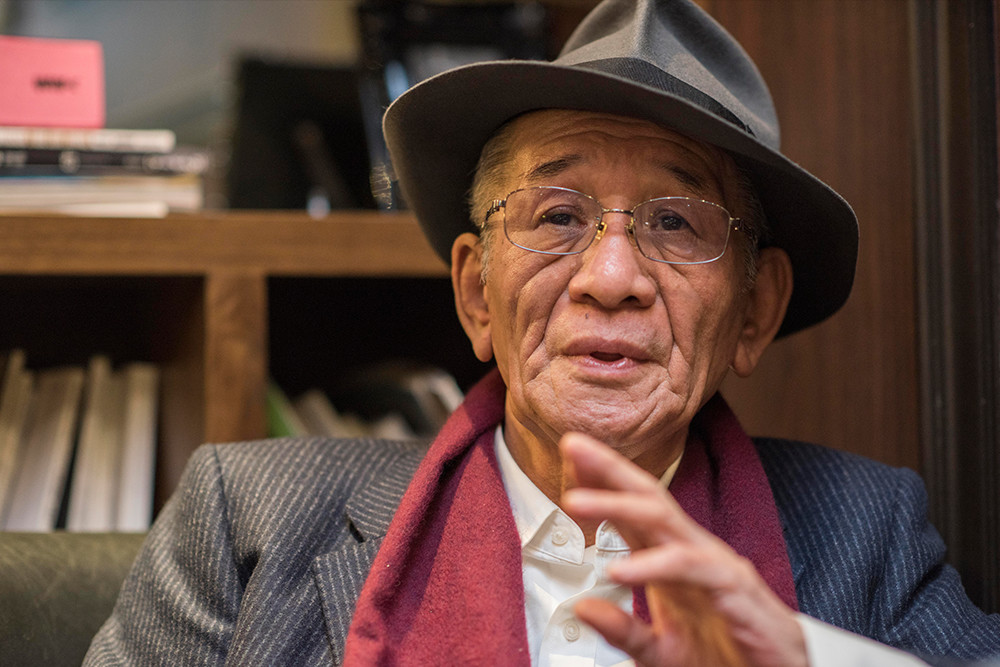
In 1977, together with Chinatsu Nakayama and Kouichi Baba, I formed a political party called the “Kakushin Jiyū Rengō” (Progressive Liberal Union). To muster the power necessary to challenge the incompetent Liberal Democratic Party, we gathered 100 prominent figures, intellectuals, and university professors, each contributing 1 million yen. In total, we raised 100 million yen, which would be equivalent to about 1 billion yen in today’s currency. The person I relied on the most during this time was the historian Goro Hani.
During the war, he faced potential arrest for his anti-war education efforts and fled to Shanghai. However, he was eventually captured by the Tokkō (Special Higher Police) and was imprisoned as a traitor in an underground cell at the Tokyo Metropolitan Police Department, about a month before the war ended.
At that time, Japan received the Potsdam Declaration, which was the final demand for Japan’s surrender. However, no one could properly read the document, which was written in English. Prime Minister Kantaro Suzuki, asked Hani to translate it. Hani studied in the United States and Germany so he was proficient in English. After reading the document, Hani immediately urged, “Surrender now. If you don’t surrender soon, something terrible will happen.” This was because the document mentioned atomic bombs, warning that continuing the war would result in the unnecessary deaths of innocent people.
However, the military dismissed Hani, accusing him of being a spy, and did nothing. While they procrastinated, on August 6, 1945, Hiroshima was bombed, followed by Nagasaki on August 9. Only then did Japan finally surrender. Had the government trusted Goro Hani, they could have saved the lives of more than 200,000 people.
Anti-Power, Anti-Authority, Anti-Establishment
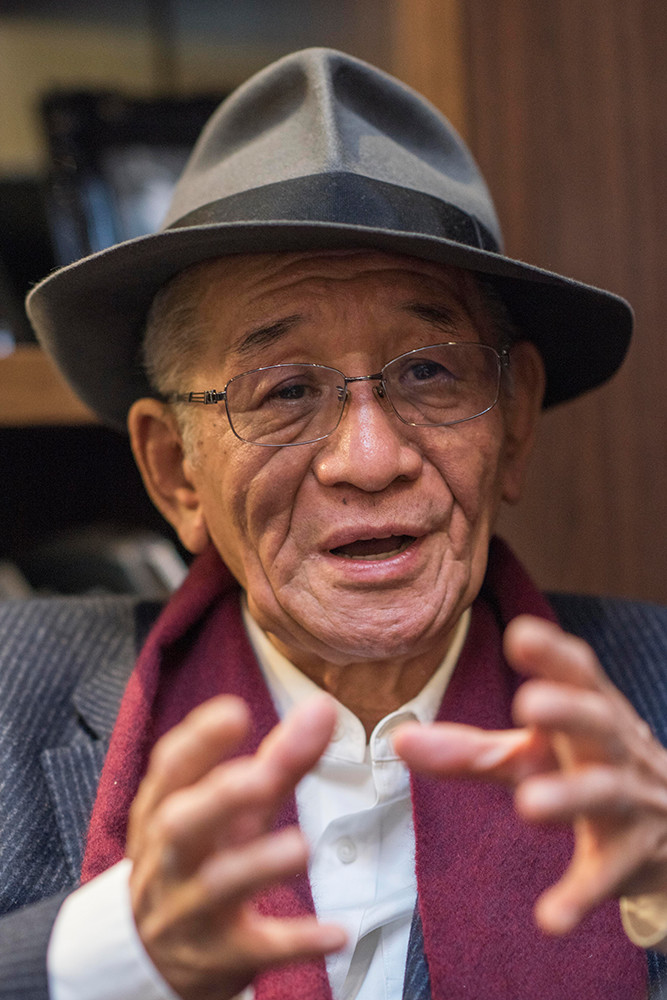
In this world, there are ideologies that are anti-power, anti-authority, and anti-establishment. First, anti-power. Having been a newspaper journalist, I have a profoundly critical view of power. Power inevitably corrupts. Historically, no matter how admirable power may seem, it always leads to corruption. Corruption leads to collapse. Power is at its worst during its peak because that is when corruption has already begun. I don’t hate Prime Minister Abe, but I believe the issues with Moritomo Gakuen and Kake Gakuen were undoubtedly cases of favoritism. They likely engaged in wrongdoing, but admitting to it would have been the end, so all the bureaucrats lied to cover it up.
Next, anti-authority. You must not become an authority. Once you start thinking, “I am great,” “I am excellent,” “I am different from others,” you are finished. When “Hanashi no Tokushū” ended, I was asked to become a professor at 12 universities. This was a way to use my somewhat successful name as a form of authority to attract students. I declined all the offers. There are countless journalists and newscasters whose career goal is to become university professors. The moment someone aspires to academic authority, they are done for.
The third is anti-establishment. The establishment seeks safety. The moment you try to maintain the status quo, the rot of self-preservation begins. I found myself offering magazines that I mistakenly assumed would be interesting to the readers rather than focusing on what I found interesting. The decline in the circulation of “Hanashi no Tokushū” began when I tried to maintain the establishment.
The Most Important Thing is People
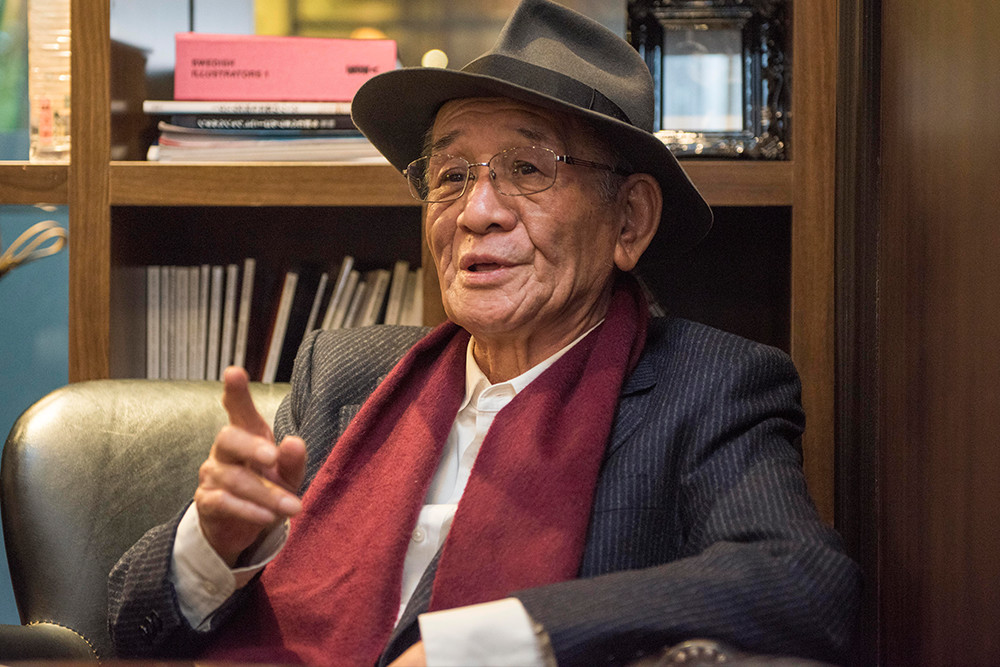
The single most significant factor that has changed the world is nuclear power. There is nothing else like it. When we were forming the Progressive Liberal Union, we invited Hideki Yukawa to be one of the 100 members, and what he regretted most was his discovery of the meson theory. He believed, “If I hadn’t proposed the meson theory, humanity might have taken a different path. Predicting the existence of mesons, which mediate the force of nuclear power, ultimately led to the development of nuclear weapons. Nuclear power could destroy humanity.” The person who first conceived of atomic energy was already thinking that nuclear power might lead to the annihilation of humanity. This is an extremely serious matter.
With the advent of nuclear power, humanity may face extinction even before the sun explodes. The potential for humanity to destroy itself by its own hands—this is the threat posed by nuclear weapons. The United States has 10,000 nuclear warheads, Russia has 9,000, and China has 3,000. If something like World War III were to break out and these weapons were unleashed, the Earth would be destroyed. The sheer number of nuclear weapons currently on the planet has that kind of destructive power.
The most important thing is people. What should we protect in order to safeguard humanity? I believe that the most crucial thing is to stop anything that could lead to war or nuclear conflict. The significance of ICAN (the International Campaign to Abolish Nuclear Weapons) winning the Nobel Peace Prize in 2017 is enormous.
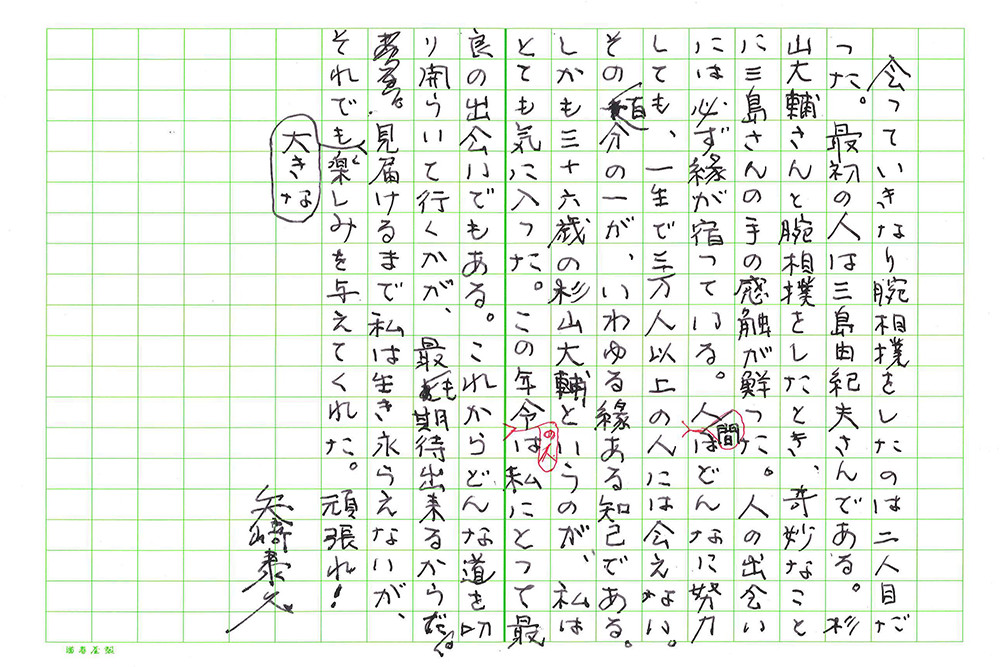
He was the second person I arm-wrestled immediately after meeting. The first was Yukio Mishima. When I arm-wrestled with DK Sugiyama, strangely enough, the sensation of Mishima’s hand came back to me. There is always a sense of fate in human encounters. No matter how hard one tries, it’s impossible to meet more than 30,000 people in a lifetime. One percent of that number represents those with whom we share a meaningful connection. I was particularly fond of DK Sugiyama, who is 38 years old. At this age, people tend to be the best encounters for me because this is when they have the greatest potential to carve out their own path. Though I won’t live long enough to see where his path will lead, he has still given me great joy. Keep going!
Journalist, Yazaki Yasuhisa
It was an extraordinary time, transcending space and time. The conversation was incredibly deep, deep, deep (laughs). After hearing the story about arm-wrestling with Yukio Mishima, we decided to take a photo together while arm-wrestling. I was amazed by the strength in his arms—it’s hard to believe he’s 84 years old! It reminded me that age is just a number.
Mr. Yazaki shared with me an old saying, “Asobi o semu to ya umareken,” which means that the essence of being human is to play. The idea that we were originally born to play left a deep impression on me. Moving forward, I will continue to do enjoyable work and live a joyful life. The encouraging message from Mr. Yazaki has made me even more motivated.
October 2017, at Hoshino Coffee,Translated by ILI Inc.




